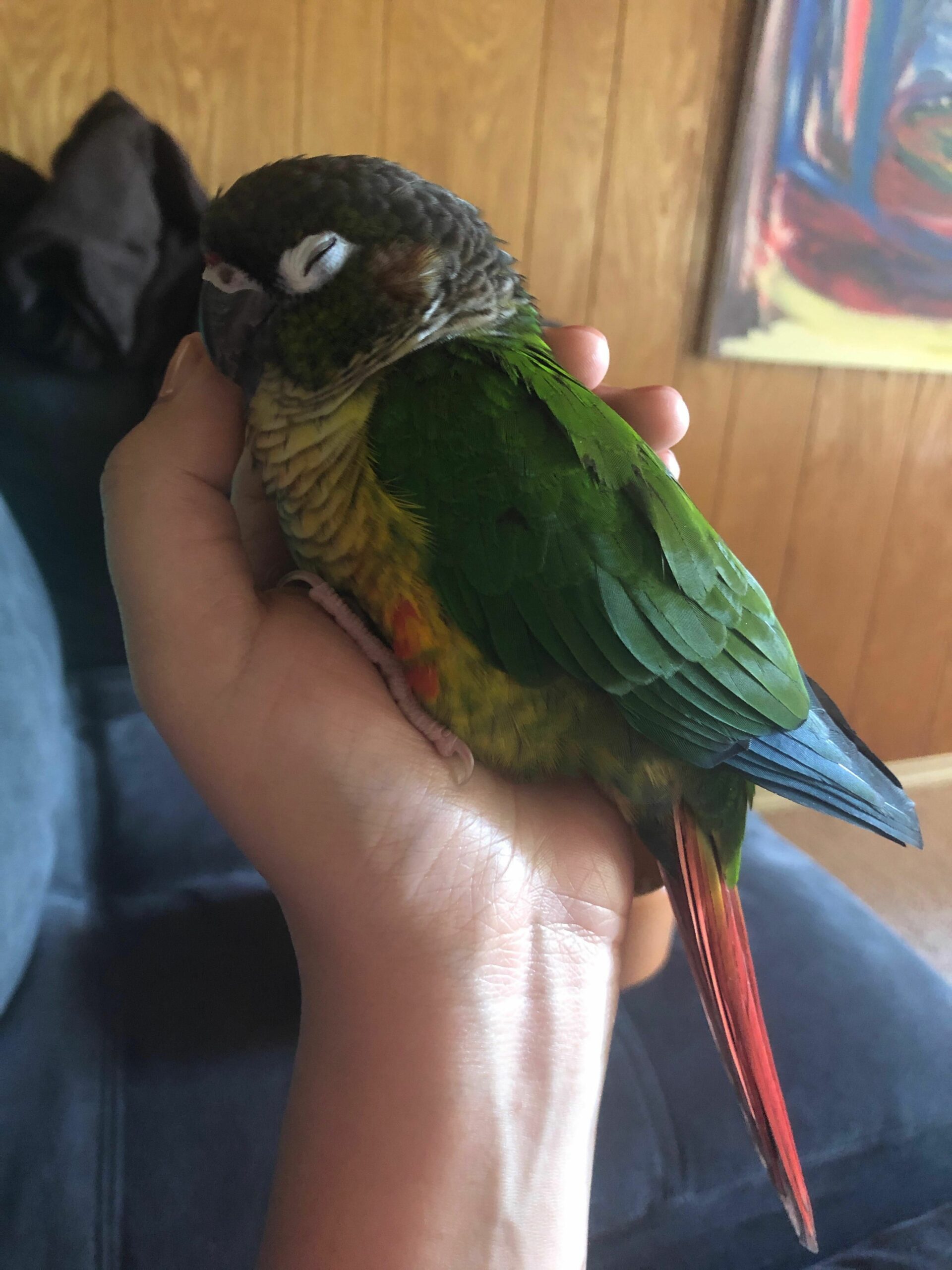So, you’ve welcomed a vibrant green cheek conure into your home, or perhaps you’re considering adding one to your family. These charming birds are bundles of energy and affection, but how long can you expect to enjoy their playful antics and endearing company? This comprehensive guide will equip you with the knowledge and practical advice to help your green cheek conure live a long, healthy, and fulfilling life, potentially even surpassing the average lifespan. We’ll explore everything from ideal diet and environmental enrichment to preventative healthcare and the subtle nuances of conure companionship.
Understanding the Green Cheek Conure Lifespan
Just how long do these little green companions grace our lives? The typical lifespan for a green cheek conure at home is between 15 and 25 years. That’s a significant commitment, akin to welcoming a feathered member of the family for decades to come. With exceptional care, some green cheeks have even been reported to live into their 30s. While these cases may not represent the norm, they suggest that providing the right environment, nutrition, and care can significantly influence a conure’s longevity. Much like with humans, a healthy lifestyle often correlates with a longer, more vibrant life.
Wild vs. Captive: A Tale of Two Lifespans
In the wild, green cheek conures can astonishingly live for 30 years or more. This impressive feat is even more remarkable considering the daily challenges they face, including predators, fluctuating food sources, and exposure to diseases. Life in their natural habitat is certainly no walk in the park. However, captive conures, shielded from these environmental pressures, enjoy a comparatively safer existence. While their average lifespan is generally estimated between 15-20 years, providing optimal care can significantly extend their time with us, sometimes even rivaling the longevity of their wild counterparts.
Key Factors Influencing Lifespan
Several crucial factors contribute to a green cheek conure’s overall health and longevity. Think of it as a recipe for a long and happy life, with each ingredient playing a vital role:
The Cornerstone of Health: Nutrition
Just as a house requires a strong foundation, your conure’s well-being depends on a balanced, nutritious diet. High-quality pellets should form the core of their meals, providing essential vitamins and minerals. Supplement these with a colorful array of fresh fruits and vegetables, which offer additional nutrients and variety. Seeds, while tempting treats, should be offered sparingly. An overabundance of seeds can lead to nutritional deficiencies and health problems.
Creating a Conure Paradise: Environment and Enrichment
A spacious cage is just the starting point. Your conure needs a stimulating environment that encourages physical activity and mental engagement. Provide a variety of toys, including those designed for chewing, climbing, and problem-solving. Regularly rotate these toys to prevent boredom and maintain your conure’s interest. A stimulating environment contributes significantly to their overall happiness and well-being.
Movement and Mental Agility: Exercise and Play
Conures are naturally active and inquisitive. Daily out-of-cage time is essential for their physical and mental health. Provide opportunities for them to fly, explore, and interact with you and their surroundings. Play games, teach tricks, or simply enjoy quiet moments of companionship. These interactions not only strengthen your bond but also contribute to a healthier, happier, and potentially longer life.
Preventative Healthcare: The Avian Vet is Your Ally
Regular checkups with an avian veterinarian are crucial. These visits aren’t simply about treating illness; they’re about preventing it. An avian vet can detect subtle signs of potential health problems before they escalate, allowing for timely intervention and potentially adding precious years to your conure’s life.
The Golden Years: Senior Conure Care
As conures age, their needs evolve. They might require dietary adjustments or special attention to joint health. Understanding these changing needs and adapting their care accordingly allows them to enjoy their senior years to the fullest.
| Factor | Impact on Lifespan |
|---|---|
| Diet | A balanced, nutritious diet—primarily pellets, supplemented with fresh produce and limited seeds—is crucial for overall health and longevity. |
| Environment | A stimulating and enriching environment with varied toys and regular rotation reduces stress and promotes physical and mental well-being. |
| Exercise | Regular physical activity through flight and play is essential for maintaining a healthy weight, strong muscles, and good cardiovascular health. |
| Socialization | Interaction and bonding with their human companions provide mental stimulation and prevent boredom, contributing to a happier and healthier life. |
| Veterinary Care | Regular checkups with an avian vet are vital for preventative care and early detection of potential health problems, significantly impacting lifespan. |
The Conure-Human Connection: Building a Lasting Bond
Green cheek conures are known for their potential to form strong attachments to their human companions. This bond, however, isn’t automatic; it requires nurturing, patience, and understanding. Consistent interaction, gentle handling, and positive reinforcement build trust and lay the foundation for a deep and meaningful connection. Early socialization is equally important, exposing your conure to various sights, sounds, and people from a young age, helping them develop into well-adjusted and confident companions.
While some conures may be more openly affectionate, others express their love in more subtle ways, such as gentle nibbles, preening, or simply choosing to be in your presence. It’s essential to recognize and appreciate these individual expressions of affection.
Caring for Your Conure: Is it High Maintenance?
The question of whether green cheek conures are high maintenance is a complex one. While they certainly require more care than a goldfish, characterizing them as “high maintenance” may be misleading. The level of effort involved depends largely on your approach and commitment to providing proper care.
These intelligent and social birds thrive on interaction and mental stimulation. Daily playtime, training sessions, and regular engagement are crucial for their well-being. Neglecting these needs can lead to boredom, stress, and behavioral issues, which in turn can increase the perceived “maintenance” required. Conversely, proactive care, including a balanced diet, a stimulating environment, and regular vet checkups, can simplify day-to-day care and foster a strong, healthy, and well-adjusted companion.
Beyond the Basics: Unique Insights into Conure Care
While much has been written about basic conure care, some crucial aspects often go unexplored. Understanding these nuances can significantly impact your conure’s health and longevity:
-
The Importance of Preventative Care: Regular vet checkups are vital, but understanding specific preventative healthcare strategies can elevate your care to the next level. Discuss blood tests, early signs of illness, and the importance of finding an experienced avian veterinarian with your vet.
-
Age-Related Care: A conure’s needs change throughout their lifespan. Learn about dietary adjustments for senior birds, managing potential age-related health issues like arthritis, and adapting your approach to their evolving needs.
-
Enrichment and Mental Stimulation: Go beyond basic toys and explore creative ways to keep your conure mentally stimulated. Consider foraging toys, puzzle feeders, and rotating their toys regularly to maintain their interest and prevent boredom.
By focusing on these often overlooked aspects of conure care, you can provide an environment that maximizes their well-being and potentially extends their lifespan beyond the average.
Remember, while this guide offers a comprehensive overview, ongoing research constantly adds to our understanding of avian care. Staying informed and adapting your approach as new information emerges is essential for responsible conure ownership. emys blandingii provides an interesting comparison in terms of lifespan and care requirements for another unique species. By embracing a proactive and informed approach to care, you’ll not only enrich your conure’s life but also deepen the bond you share for many years to come.
















